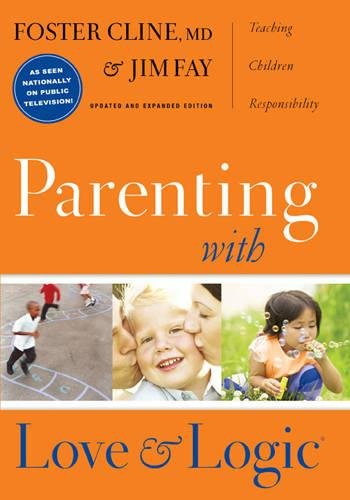
I read this book “Parenting with Love and Logic” by Foster Cline and Jim Fay some months ago and I thought that the principles they share in teaching children responsibility are practical and important for us to adopt. All parents want to raise responsible children that are able to make wise choices in life. Life is really complex and we only have a certain number of years to train these little brains.
Some days, I struggle with knowing what is the right thing to do with my child. Do I discipline my child with the rotan (a typical Malaysian rod created to inspire fear) or talk through problems with them hoping they will understand my perspective? When do I give grace to their mistakes, and when do I come down hard on them?
Honestly, there are days when I wonder, what am I doing right or wrong as a parent!? These little tyrants are taking over the house!
This book has helped me answer some of my questions. But firstly, we need to understand that there are various universal parenting styles, as explained in this book.

1. Helicopter Parents
These are parents who believe that showing love means revolving their lives around their children. Whenever their child falls, no matter how small the injury, these parents would be the first to rescue them out of trouble. Perhaps their child forgot to bring their lunch box to school. No worries, these parents would be there to rescue the little one immediately during lunch break. When they see their children hurting, they hurt too, and then they bail them out. If anyone puts their child in a bad light, these parents would be there to protect him from danger. The problem with this parenting style is that our world does not work that way. When children grow into adults, they need to learn how to be responsible for their own lives. Their parents shouldn’t be there to bail them out on real life problems like debt, bad bosses and crippling diseases. By the way, I have experienced situations where I received a call from a parent to apply for a job for their adult child. The parent also wanted to attend the interview with me. I said, no thank you.
2. Turbo-Attack Helicopter Parent
These parents are the evolved version of the helicopter parent. They are obsessed with the desire to create the perfect world for their child; one in which their child will never have to face struggles, inconvenience, discomfort or disappointment. This child’s mistakes will be swept under the carpet but can look great on paper with excellent results and impressive extra-curricular activities. If their child is highlighted in school for poor behaviour, this parent will attack the school system and make the child appear as a victim, always in protective mode for the child.
3. Drill Sergeant Parents
I was born in 1979 and most of my peers grew up with military, drill sergeant type parents, who barked orders without explaining the reason behind their instructions. We weren’t taught how to think for ourselves, we just needed to obey. Our decisions and personal will were disregarded, our parents’ decisions were of utmost importance. We only knew how to listen to our parent’s voices, and never our own. Naturally, when we grew older, the voices outside our head were exchanged from our parents to our friends through peer pressure. Parents who love controlling situations this way end up with a child that would fight to regain control.
Thankfully, my parents gave me a little freedom to talk things through, though I still remember screaming and having tear-filled fights as a teenager about why I should be allowed to go to church camp. I wanted to be heard, but all I received was a court order from the highest authority in my family. The message most helicopter parents send to their children are, “You are fragile and can’t make it without me. You can’t think for yourself. I’ll do the thinking for you.”
4. The Laissez-Faire Parent
These parents are sometimes inundated with so much parenting advice, that they decide to just allow the child to govern himself / herself, believing that the child will somehow grow into responsible adults if they (the parent) would stay out of the way and not interfere. Some also believe that they should be their child’s best friend so relationship is more important than discipline. Some just allow their children to run free because they feel guilty for working too much and not spending enough quality time with their children.The authors of the book say, “While children should be able to decide between safe and responsible options, we do not advocate letting them decide everything for themselves.”
5. The Consultant Parent
Children need thoughtful guidance and firm, enforceable limits. Consultant parents must set these limits and help children understand that they are responsible for their actions and will suffer reasonable consequences for actions that are inappropriate. The consultant parent guide their children to think about their behaviour and help them feel in control of their actions by giving choices within those limits.
This is the Love Logic parenting style – using a consultant style of parenting as early as possible in their child’s life by asking questions and offering choices.
Instead of telling their children what to do, they allow the burden of decision making to lie on their children’s shoulders and establish limits.
Now, if you think about your own parents, what style of parenting did they enforce on you? A lot of families have at least one drill sergeant parent and another helicopter type of parent. We might have told ourselves, “I’ll never be like my parent!” But then we swing back into that style of parenting simply because we do not know any other way.
Now that we know where we each stand as a parent and how ineffective some methods are, let’s explore what the Love and Logic parenting style is in another post.



